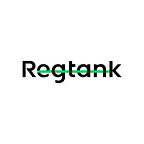The Differences Between DAE, DAC, VASP and MSB and How It Impacts Compliance
For businesses that deal with cryptocurrencies, there are many terms, such as Digital Asset Entity (DAE), Digital Asset Customer (DAC), Money Service Business (MSB) and Virtual Asset Service Provider (VASP) that are thrown around and used interchangeably.
Combined with the fact that they are often used to describe very similar things, one might think that these actually refer to the same service provider.
However, these classifications are all different depending on the context. And because these terms refer to different service providers (albeit all related to cryptocurrency and/or fiat exchanges), these entities are all regulated differently.
For businesses that deal with these financial entities, being able to tell them apart is extremely important.
Digital Asset Entity (DAE) and Digital Asset Customer (DAC)
Used as a sweeping term, DAEs (also known as Virtual Asset Entities) refer to any businesses that deal with digital assets (a digital representation of value, like cryptocurrencies or NFTs) in their day-to-day transactions.
Under this definition, any business can be classified as a DAE and the term is not only used to describe financial institutions. DAE is the broadest description of businesses that handle digital/virtual assets of any form.
The definition of a DAC is a simple extension to the idea of a DAE. Simply put, DACs refer to a DAE that engages the service of a formal financial institution (like a bank).
Virtual Asset Service Provider (VASP)
Narrowing down from the concept of a DAE, VASP is a subset of DAE.
Unlike DAEs, where dealing with virtual assets is good enough for a business to be categorised as one, cryptocurrency has to be at the heart of a VASP. According to the Financial Action Task Force, an intergovernmental organisation that works to prevent money laundering and the financing of terrorism, there are 5 different services that earmarks an entity as a VASP (a business only needs to provide one of the following before it is considered a VASP):
- Exchange between Virtual Assets and Fiat Currencies
- Exchange between one or more forms of Virtual Assets
- Transfer of Virtual Assets
- Safekeeping and/or Administration or Virtual Assets or Instruments enabling control over Virtual Assets
- Participating in and Provision of Financial Services related to an Issuer’s offer and/or Sale of a Virtual Asset;
In other words, if a person wanted to buy, sell, trade or find someone to manage his/her cryptocurrencies, a VASP would be the financial entity to approach.
Money Services Business (MSB)
Out of the 4 terms, MSB is the most general term that can be used to describe a financial institution . Unlike the rest, MSBs do not have to deal with virtual assets but can choose to simply deal with physical currency.
It can be noted that a VASP is classified as an MSB and will have to fulfil all AML and KYC obligations that regular MSBs follow. As VASPs deal with virtual assets, they will have to follow any prevailing regulations that are put in place for businesses that deal with cryptocurrencies.
Why The Differences Matter
As mentioned, the categorisation of an entity as a VASP means that not only does all prevailing MSB regulations apply, the entity is also liable for additional regulations and checks that can apply to financial institutions that deal with virtual assets.
On the other hand, DAEs encompass a large variety of different businesses. Being able to understand if a DAE is actually a VASP or DAC can affect the type of compliance checks that have to be conducted when doing business with them. The ability to differentiate between all the different categorisations can ensure that all the compliance processes are up to date.
As the virtual asset market continues to develop and affect how regulations are made, Regtank strives to continue making KYC and AML processes simple and comprehensive for all. Contact us at info@regtank.com for a demo!
Originally published at https://regtank.com on March 1, 2022.
